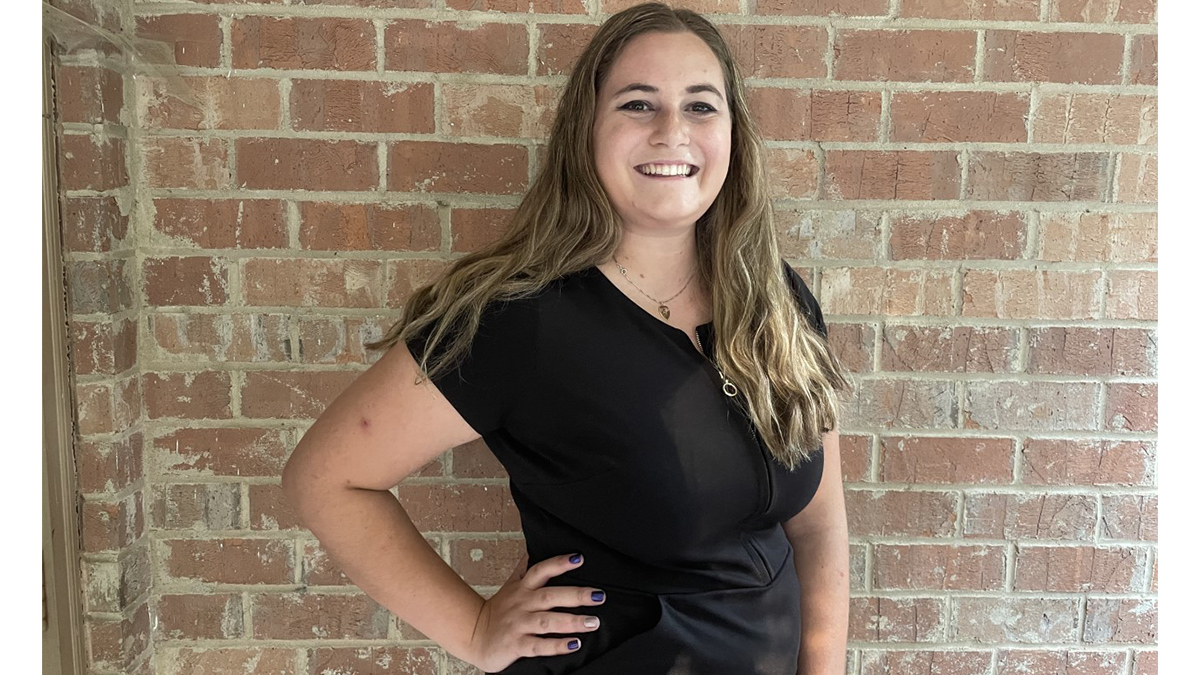Jenna Hynes is interning with the Piedmont Conservation Council in Siler City, North Carolina, conducting fieldwork and partnering with community members to preserve the city’s water sources.

As an environmental science and chemistry major, Jenna Hynes spends a lot of time thinking about water and the challenges communities face with the fragile resource.
“You don’t think about it when you’re swimming in a lake, but there can be a lot more in there than just water,” she says. “After it rains, sewage water and stormwater mix in the sewers, which then drains into the lake. This makes some areas of lakes a potential health hazard, but you would never know it.”
This summer, the rising senior is working in the field to help community members in Siler City, North Carolina, protect its water sources. As an intern with the Piedmont Conservation Council, she is mapping the areas surrounding creeks, collecting data and building partnerships in the community to help develop a plan to address issues facing the Loves Creek watershed.
Hynes connected with the Piedmont Conservation Council for her internship through the UNC Institute for the Environment’s EcoStudio, a partnership with the Environment, Ecology and Energy Program. The program pairs students with environmental and sustainability organizations on campus and throughout the state to give Tar Heels workplace experience and a chance to make a difference.
As the Piedmont Conservation Council’s creek watershed field and data assessment intern, Hynes has been paired up with Biocenosis, a small local business focused on environmental stewardship and natural resource management. The experience is Hynes’ first chance to conduct fieldwork, and the hands-on work has been a much-anticipated change of pace from the past 16 months.
“After a year of being online and doing Zoom for everything, I just really wanted hands-on experience,” she says. “At the end of the day, you can learn about it in a classroom, but you need to be there in person to really experience it.”
Though Hynes works remotely several days each week — compiling data and creating flyers for community programs — she joins the Biocenosis team in the field once a week to learn more about the watersheds and the environmental efforts that can improve water quality. She is also assisting with mapping the area to evaluate the canopy cover to determine where more trees are needed to protect the watershed. Proper canopy cover can keep pollutants from streaming into the creeks when it rains.
The internship has also opened her eyes to an important part of being an environmental scientist: working with community members. One of the community-oriented projects she is working on is “Soak Up the Rain,” which provides Siler City residents with trees to increase the canopy cover at the creek. She’s meeting with community members to encourage them to participate.
“Our goal is to make sure that people understand how to keep the environment safe and how to keep the creek healthy,” she says. “It’s about getting people aware of their surroundings.”
While the hands-on fieldwork has been useful as Hynes continues to hone her research and communication skills, it’s been the mentorship from the Piedmont Conservation Council and Biocenosis teams that has significantly impacted the Tar Heel. As she prepares for the final year of her undergraduate studies, learning about career paths and experiences from experts in the field has helped her develop her post-college plans.
“I’ve been asking them questions about their careers,” she said. “I’m not only doing the science. They’ve also given me ideas of how they got started.”
By Brandon Bieltz, University Communications
